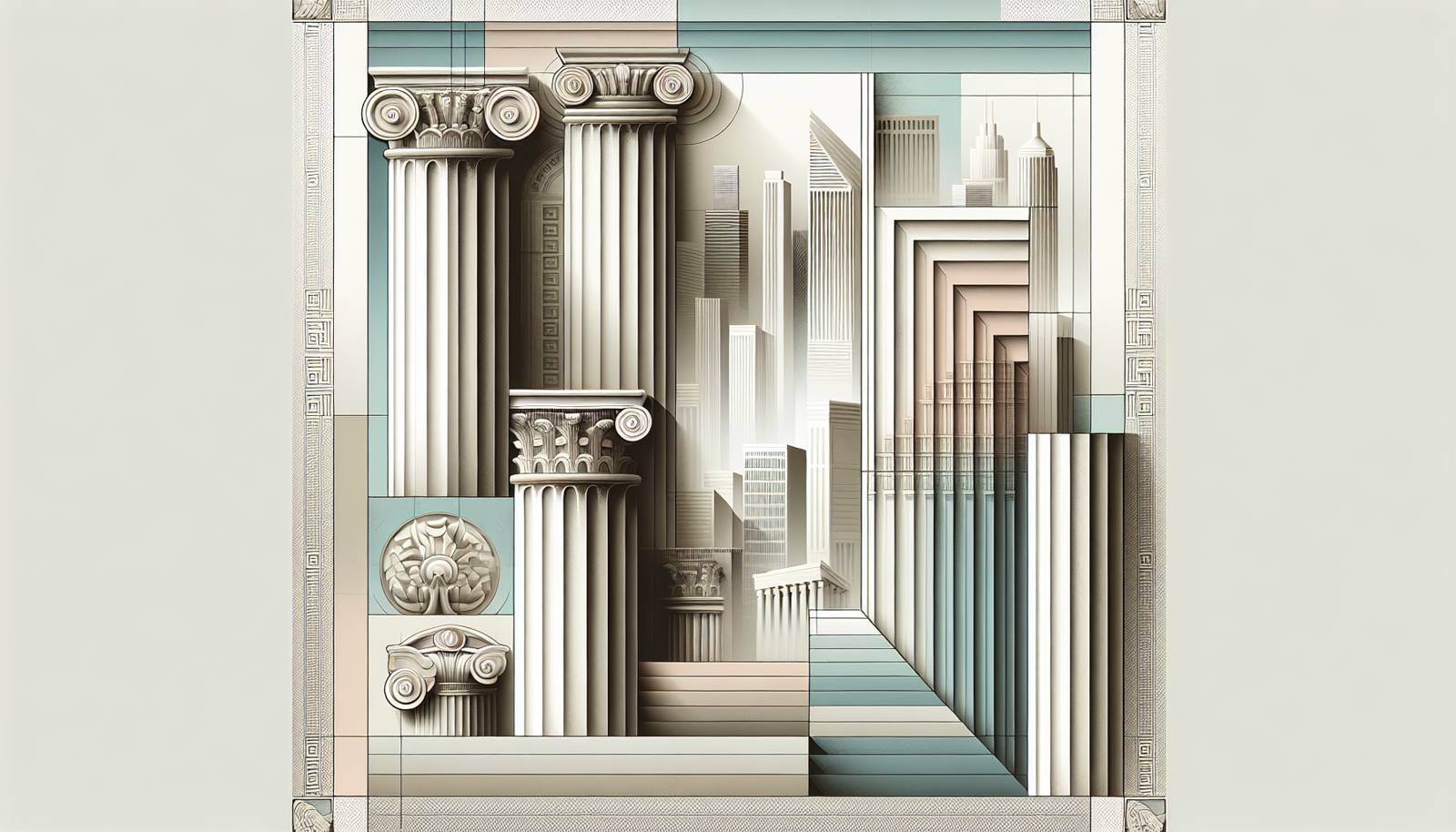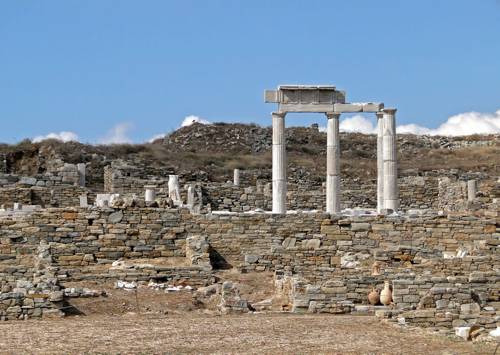
FAQ About The Role of Classical Antiquity in Modern Narratives

What is classical antiquity?
Classical antiquity refers to a long period of European history that spans approximately from the 8th century BC to the 6th century AD. It encompasses the civilizations of ancient Greece and Rome, and their lasting contributions to art, philosophy, architecture, science, and government.

How do modern narratives incorporate themes from classical antiquity?
Modern narratives incorporate themes from classical antiquity by reimagining archetypal characters, storylines, and philosophical ideas. Authors and filmmakers often draw on Greek myths, Roman gods, classical hero journeys, and themes such as fate, honor, and justice to create compelling stories that resonate with contemporary audiences.

Can you give examples of films influenced by classical antiquity?
Films like "Gladiator" and "Troy" draw extensively on themes and characters from classical antiquity. "Gladiator" reimagines the Roman Empire, while "Troy" adapts the story of the Trojan War from Homer's "Iliad." These films not only depict historical settings but also explore timeless themes of bravery, power, and human struggle.

Why are classical antiquity themes popular in modern storytelling?
Themes from classical antiquity remain popular due to their timeless nature and universal appeal. These themes explore fundamental human experiences such as love, power, betrayal, and identity, which continue to resonate with modern audiences. Additionally, the rich mythologies and histories provide endless material for creative reinterpretation and adaptation.

How do classical mythology figures appear in today's literature?
Classical mythology figures appear in today's literature by being reinterpreted in various genres, including fantasy, science fiction, and historical fiction. For instance, Rick Riordan's "Percy Jackson & the Olympians" series reimagines Greek gods and heroes in a contemporary setting, engaging a new generation with these ancient characters.

What role does classical antiquity play in modern art?
In modern art, classical antiquity inspires themes, motifs, and styles that artists incorporate into their works. Artists may reference ancient myths, recreate classical portraits, or use classical architectural elements to comment on contemporary issues or explore universal themes. This dialogue between past and present enriches the artistic landscape.

Are there any misconceptions about how classical antiquity influences modern narratives?
A common misconception is that stories influenced by classical antiquity are direct retellings of historical events or myths. In reality, these narratives often involve reinterpretation and creative liberty, allowing storytellers to explore new angles or draw parallels with contemporary issues, thereby making the ancient stories relevant to today’s audience.

How has classical antiquity influenced modern theater?
Classical antiquity has deeply influenced modern theater through the foundational works of playwrights like Sophocles, Euripides, and Aristophanes. Their tragedies and comedies have inspired countless adaptations and modern works. Themes like tragic flaws, hubris, and catharsis remain central to many modern plays.

Which classical works are most frequently adapted in modern storytelling?
Works such as Homer’s "Iliad" and "Odyssey," Virgil’s "Aeneid," and the tragedies of Euripides and Sophocles are frequently adapted in modern storytelling. These works contain powerful narratives and complex characters that provide rich ground for reinterpretation in various formats, from literature to theater to film.

In what ways are classical themes used to comment on contemporary issues?
Classical themes are often employed to comment on contemporary issues by drawing parallels between ancient and modern dilemmas. For example, tales of heroism and governance found in classical texts may be used to explore political ethics, social justice, and personal integrity in the modern world, providing insightful critiques or hope.

How do modern authors balance authenticity and creativity in adapting classical themes?
Modern authors balance authenticity and creativity by respecting the core elements of classical themes while giving themselves the freedom to update or reinterpret these elements to fit modern contexts. This might involve changing settings, introducing new characters, or exploring contemporary issues through the lens of ancient narratives.

What is the significance of reimagining classical antiquity for modern audiences?
Reimagining classical antiquity for modern audiences helps preserve cultural heritage and allows new generations to engage with time-honored narratives. It allows contemporary storytellers to explore perennial human questions and encourages audiences to reflect on how these ancient ideas relate to today’s world, fostering cultural continuity and dialogue.

Why do filmmakers often choose classical settings for epic stories?
Filmmakers opt for classical settings in epic stories because these settings offer grand, dramatic backdrops that enhance storytelling. The iconic landscapes, majestic architecture, and rich histories of classical civilizations add depth and authenticity to narratives, while the universal themes resonate strongly in the high-stakes, extravagant tales typical of epics.

How is the character of the classical hero depicted in modern narratives?
The classical hero in modern narratives often embodies characteristics such as bravery, strength, and moral integrity but is also depicted with vulnerabilities and complexities that resonate with contemporary audiences. These heroes might face modern challenges while reflecting timeless qualities and undergoing personal growth or tragic downfalls.

What impact does the study of classical antiquity have on modern education?
Studying classical antiquity impacts modern education by providing insights into the foundations of Western civilization. It enriches students' understanding of language, philosophy, history, and the arts, fostering critical thinking and cultural awareness. Teaching these subjects also helps develop analytical skills and an appreciation for ancient cultures.

Are there modern equivalents to ancient myths in today’s storytelling?
Yes, many modern stories act as equivalents to ancient myths by exploring similar themes of creation, morality, heroism, and the human condition. Science fiction and fantasy genres, in particular, often create new worlds and lore that mirror the mythic structure and function of classical myths, providing moral and existential narratives.

How do visual artists incorporate classical antiquity in their work?
Visual artists incorporate classical antiquity by drawing inspiration from classical themes, figures, and aesthetics. This can involve recreating or reinterpreting mythological scenes, using classical motifs like laurel wreaths and columns, or adopting the techniques of classical sculpture and painting to convey messages relevant to contemporary culture.

What role does translation play in reviving classical narratives in modern times?
Translation plays a crucial role in reviving classical narratives by making ancient texts accessible to a broader audience. Modern translations often update language and context, allowing classic stories to be understood and appreciated by contemporary readers. This revitalizes interest and ensures the ongoing relevance of these ancient works.

How do classical narratives influence modern video games?
Classical narratives influence modern video games by providing rich source material and themes that developers adapt into interactive experiences. Games like "God of War" and "Assassin’s Creed: Odyssey" utilize mythological stories and historical settings, engaging players with narratives that blend ancient worlds with contemporary gameplay mechanics.
